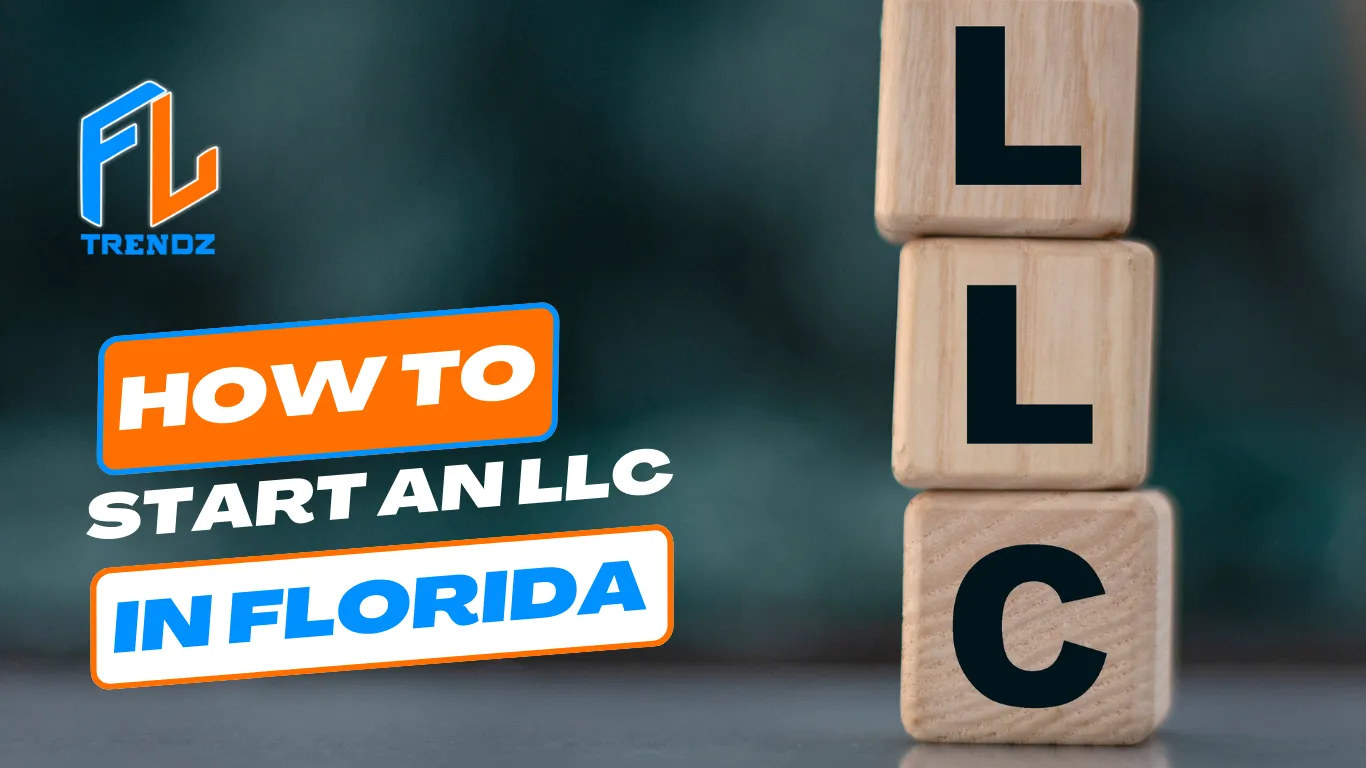How To Start A Business in Florida: Key Steps & Tips
Do you want to start a business in Florida but not quite sure where to begin or how to start a business in Florida?
Don’t worry! The Sunshine State is entrepreneur-friendly, which makes it a terrific place to launch a new business. We can’t deny many good reasons which urge you to start a business here.
Florida’s government keeps regulatory requirements and business taxes low, and there are no personal income, capital gains, or death taxes.
Setting up a new company requires you to do homework to avoid costly blunders.
Therefore, we have created this step-by-step guide to help you equip yourself with everything you need to know.
10 Steps: How to Start a Business in Florida

Let’s delve into details and learn how to start a new business in Florida without hustle.
Related Content: Best Business Schools in Florida
Step 1 – Determine the Business Structure
The first task is determining your business structure, depending on your business type or industry.
Some businesses require a license for the profession, while others consider whether your business will be for-profit or Not-For-Profit.
You can choose a corporation, limited liability company, partnership, general partnership, limited partnership, or sole proprietorship.
Consult with your financial and legal advisors to seek guidance and determine the best fit for you.
Corporation
Corporations are separate legal entities that protect the owner’s personal assets and have shareholders, directors, and officers.
These legal entities are subject to other requirements, including holding regular shareholder meetings and maintaining corporate records.
Setting up a corporation will be beneficial once your business is larger or if you plan to go public anytime.
Sole Proprietorship
A sole proprietorship is an unincorporated business that has one owner. The income is taxed as the owner’s personal income in this business structure.
Go for sole proprietorship and be responsible for your business debts and obligations as the business owner.
If you operate in the Sunshine State, there’s no income tax; however, you would be required to collect sales tax if applicable.
Limited Liability Company (LLC)
Unlike a sole proprietorship, a limited liability company (LLC) is a separate legal entity with one or more owners.
When an LLC is formed, creditors won’t go after personal assets as long as they are secured by the LLC.
Take a look: How to start an LLC in Florida
An LLC can be taxed as a sole proprietorship, partnership, or corporation. There are several ways to start Florida LLC., which handles all your business details, including obtaining a federal employer identification number and filing legal documents.
Limited Liability Partnership (LLP)
Likewise, LLC, the LLP offers owner partners legal protection. However, the Florida LLPs are still personally liable for the partnership debts.
The Limited Liability Partnership protects each partner from the other partner’s liabilities.
For providing professional services, including those of architects, attorneys, and accountants, professionals commonly use LLPs. Where other states don’t offer LLPs, Florida does.
More to Explore: Best Places to Start a Business in Florida
Step 2 – Register with the Department of State (DOS)
Complete and submit the articles of incorporation found on Florida’s DOS website to register the business with the Department of State. For this purpose, gather the following items:
Business Name
Choose a unique and distinguishable name for your business that separates it from others.
Business Address & Mailing Address
Please provide the street address where your business will be located. If your mailing address is different, you must resubmit it.
Choose a Registered Agent
A registered agent is a company or an individual that you choose to receive essential legal, tax, and government correspondence on your business’s behalf. You can be your registered agent.
Corporate Purpose
Define one specific purpose for your business, such as digital marketing or practicing medicine.
Effective Date
Typically, the effective date is when the Division of Corporations receives and files your Articles of Incorporation unless you specify an alternate date.
Stock Shares
When establishing a corporation, you must enter the number of stock shares your corporation will use.
The number of shares depends on the number of people who own a portion of the corporation.
Payment
Submit payment when filing your articles of incorporation. For credit cards, you need to file online; otherwise, you can mail in your documents with a money order.
Step 3 – Register the Business Name
According to the Fictitious Name Act, any person or business entity is required to register a “fictitious name,” also known as “doing business as” (dba name), with the DOS prior to conducting business in the Sunshine State.
For sole proprietorships, you must register this as a fictitious name. If your corporation, LLC, and business name are the same as those registered, you need to file a fictitious name.
Step 4 – Register For IRS Employer Identification Number (EIN)
Likewise, the social security number serves an individual, and an EIN serves the same purpose for business.
With an EIN, you can open a business bank account, establish business credit, hire employees effortlessly, and apply for business licenses.
File an SS-4 form with the IRS and obtain an EIN. In the following conditions, you’ll need an EIN:
- Filed as a corporation or partnership.
- Your business has employees.
- If your business is involved with a trust, estate, non-profit or formers’ co-op
Establishing Florida LLC requires you to register for an Employer Identification Number.
Step 5 – Register with the Florida Department of Revenue (DOR)
You need to register with the FDOR for a few reasons, including:
Sales & Use Tax
Register as a sales and use tax dealer. These taxes will apply to the rental, sale, lease, or license to use goods, specific services, and commercial property.
Sales and tax are collected at each sale time and are due to the DOR at the end of each reporting period.
How often you file and pay will depend on the amount you collect in sales tax like:
- More than $1,000 monthly.
- Quarterly, $501-$1,000.
- Semiannually, $101-$500.
- Annually, $100 or less.
Corporate Income Tax
All LLCs, corporations, and partnerships operating in the Sunshine State must file for Florida’s Corporate Income Tax.
Your business needs to submit the Florida Form F-1120 to file corporate income tax, generally on or before the first day of the fourth month of closing your business tax year.
If your business income is more than $2,500, then you need to pay taxes until the last day of each quarter of your business tax year.
Step 6 – Fund the Business
There are several ways to fund a new business, such as small business administration loans, short-term loans, credit cards, crowdfunding, and others.
Florida’s Small Business Development offers helpful resources and gives free financial advice.
Step 7 – Register for the New Hire Program
State and federal law require all employers to report rehired or newly hired employees to the DOR. Different reporting methods are used, such as online, electronic, and mail or fax.
Step 8 – Apply for Business License, Permits or Registration
If your business deals with a skilled trade, you’re required to apply for a business permit or license.
Florida’s Department of Business & Professional Regulation licenses a wide range of industries, including community association managers, geologists, and restaurants.
However, Florida’s Department of Agriculture & Consumer Services licenses other businesses, such as private investigators and agricultural dealers.
Step 9 – Check Local Regulations & Requirements
The municipal government and the local county have their requirements for new businesses, which may require additional permits and licenses.
Ensure that you check the local county or city’s website and are familiar with local ordinances and additional requirements.
Step 10 – Open a Business Bank Account
When a business is incorporated, opening a business bank account is a good idea to separate personal and business finances.
It reduces confusion at tax time or during an audit. Select a bank that offers distinctive account types for businesses and individuals.
Conclusion
Undoubtedly, the Sunshine State has a growing economy and a reputation for being business-friendly. Make the smart move and start investing here. Choose the fastest and easiest way to register your business in Florida. Provide appropriate documents when registering to save time.






